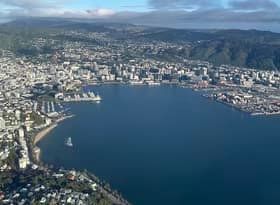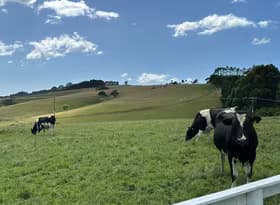Infometrics welcomes Rob Heyes as their newest senior economist. Rob joins Infometrics from MBIE, where he led research projects on migration trends and was the New Zealand representative to the OECD Migration Expert Group. Rob has a deep knowledge of labour markets and skills and works with our regional and sector clients.
We chat with Rob about what a day in the life of an economist looks like…
Bio – Rob Heyes
Studied at: Warwick University (UK), M.Econ.
Resides in: Wellington
Jacqui Clarke: What awakened your interest in economics and started you on your career path?
Rob Heyes: When I left school at 16, I was in the process of choosing which subjects I wanted to enrol in for further study. I remember looking through a booklet that listed all the possible courses. I had never even heard of economics, but for some reason when I read the short blurb about what it was about – unemployment, interest rates, exchange rates etc – it really jumped out at me. After that, I have never questioned what my ideal career is because I am doing it.
Jacqui: What is your background and how has this influenced your work at Infometrics?
Rob: I have always had a thirst for travel and I have been lucky enough that my chosen profession has allowed me to do that. I was born in England and started my career working in the UK Government Economic Service in London. Since then I have worked in Wellington and Melbourne. Much of my time in Melbourne was spent working at the Department of Education and Early Childhood Development. I was lucky enough to see first-hand the impacts of a change in tertiary education funding policy from funding the tertiary providers to funding students. At the time, I was managing a team of economists whose role was to analyse and report on the impacts of this change. I learned two important lessons from this experience: that competition between tertiary education providers does not always benefit the student and governments should treat spending on education and training as an investment rather than a cost (with economists advising them on the returns to this investment).
Jacqui: What are your ‘special interest areas’, economically speaking?
Rob: I have always been interested in how labour markets work and the role of government in intervening in the labour market through policies such as the minimum wage and schemes to support people who are unemployed to find stable employment.
Jacqui: What was the most interesting or challenging project you worked on?
Rob: At the (then) Department of Labour, I produced five issues of the WorkInsight publication. Its purpose was to inform employers, local government, education providers and a host of other readers about emerging skills issues. The key challenge was to bring economic concepts to a non-technical audience. I did that by combining personal interest stories with visually appealing diagrams that conceptualized economic frameworks. I knew that I was successful in reaching a non-technical audience because I would get requests from school teachers who wanted copies of the publication for all their students.
Jacqui: What is the nature of your work at Infometrics and how do clients benefit from what you do?
Rob: I am utilising my expertise in labour markets to develop the new Regional Labour Market Framework, which will give our clients an evidence base to see what skills will be in demand in their region in the coming decades and which of these skills employers are likely to have difficulty finding. This foresight, the ability to perceive skill shortages before they emerge, will give local government, tertiary providers and employers the time they need to grow these skills so that the shortages never occur.
Jacqui: What do you enjoy doing when not at work?
Rob: Music, travel and the outdoors. I’ve backpacked around Europe, Africa, South America, Australia and New Zealand. These days I don’t get to travel so much so I am concentrating my efforts on doing all of New Zealand’s Great Walks.
Jacqui: What is an intriguing fact about you?
Rob: I sing in a band and I even have an album of original music on iTunes. Economics requires a logical mind but a bit of creativity can go a long way. I like to think that my creative pursuits out of work enable me to think outside the box a little when I am at work.
Jacqui: Thank you Rob, for taking the time to talk to us. I’m going to search iTunes now…
















